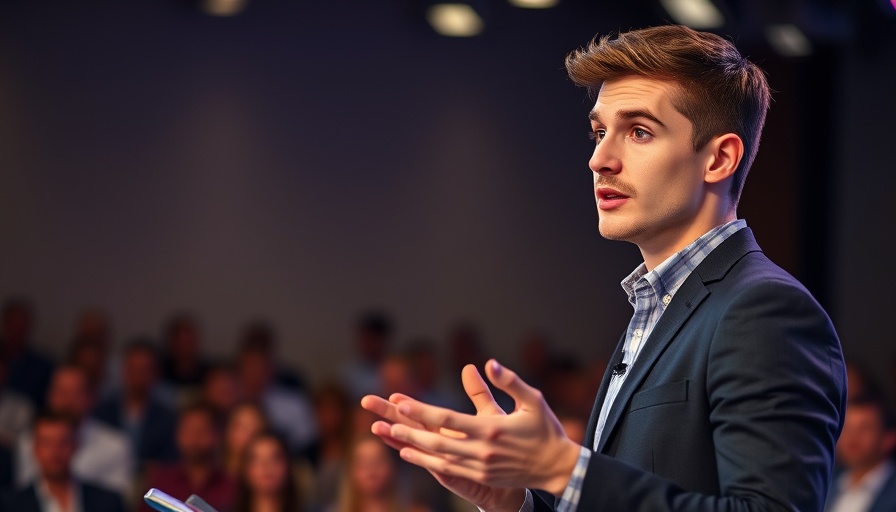
James Bond's Legacy: Why Tradition Matters
The character of James Bond has long been an emblem of masculinity, courage, and charm. Since his inception in 1953, he has captured the hearts of audiences worldwide. However, recent calls to reinterpret this iconic character as a woman have sparked heated debates. In a recent video, Helly Bry argued that James Bond should not be a woman, suggesting that attempting to redefine such a classic character contradicts the essence of who Bond is historically and culturally.
In 'James Bond SHOULD NOT be a woman!', the discussion dives into the complexities of redefining traditional characters, exploring key insights that sparked deeper analysis on our end.
The Brilliance of Bond's Characterization
One might wonder what makes James Bond such an intriguing character. At the core of Bond's identity is his unique blend of wit, charisma, and the ability to seduce whoever he chooses. This aspect of his character plays into longstanding themes of male sexuality as perceived through the lens of traditional gender roles. While some advocate for gender fluidity and the reinterpretation of characters, Bry reminds us that societal norms have shaped these roles for decades, making Bond inherently tied to masculinity.
Science and Gender Differences
In the discussion, it was pointed out that there exists a biological distinction in sexual drive between men and women, and how this fuels the narrative of the James Bond character. Scientific research suggests that these differences are not only significant but also essential when considering iconic figures influenced by gender norms. By diverting from this core essence in order to accommodate modern viewpoints, one risks losing what has made the character relatable and enjoyable for many fans.
The Implications of Reimagining Icons
What does it say about our society when we feel the need to alter established icons to fit contemporary ideals? While representation is crucial, changing characters like James Bond doesn't necessarily promote equality or understanding. Instead, it may undermine the very influence they've had over time. Instead of replacing iconic roles, can’t we create new characters that embody the narratives women want to see on screen?
A Deeper Conversation About Female Representation in Film
The discussions around James Bond extend far beyond just the character itself. The conversation reflects on how women are represented in film and the stories told about them. Women-centric narratives are essential, and more female-led character arcs should emerge. But rather than rehashing male-led stories, Hollywood should focus on unique, compelling stories that highlight strong female protagonists in their own right.
The Call to Preserve Heritage
Movies, just like our democracy, thrive on choice and personal preferences. While individuals have the freedom to express their preferences, it matters how such transformations resonate with audiences. For conservatives who value heritage and tradition, the idea of a female James Bond detracts from the character's historical significance. The concept of 'Make America Great Again' can be extended to preserving cultural staples, including beloved characters.
Engaging with Perspectives
In an ever-evolving cultural landscape characterized by disagreements on representation, opinions like Bry’s offer an anchor. Following a straightforward approach to understanding the conversations surrounding cinema can help illuminate both sides of the argument. Differences in perspective provide a rich tapestry that can either blend to enhance representations in film or stand out by informing audiences of the cultural context of legendary characters.
Conclusion: Reflecting on Bond's Cultural Role
In sum, the debate on whether James Bond should be a woman prompts essential questions about tradition, identity, and representation in the modern world. Rather than transforming legends to fit the narratives of our time, we should honor the legacies they represent. The conversation sparked by videos like the one by Helly Bry is pivotal in guiding discussions about character representation—offering conservative perspectives that remain relevant and thought-provoking.
What do you think about the future of iconic characters? Perhaps it’s time to advocate for new stories and strong female figures that resonate deeply with contemporary audiences without altering the fabric of established legacies.
 Add Row
Add Row  Add
Add 




Write A Comment